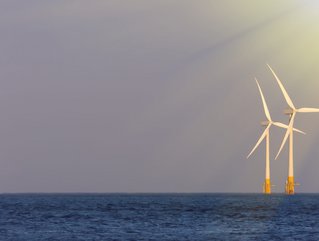J-Power and Kansai take 41% stake in innogy’s Triton Knoll wind project

Japanese energy firms Japan’s Electric Power Development (J-Power) and Kansai Electric Power are investing a total of almost £1bn in innogy’s Triston Knoll offshore wind project.
The UK project is worth a total of £2bn and is located off the coast of Lincolnshire. It is set to have a capacity of 860MW and construction will begin next year.
Innogy won the contract from the UK government and has now sold 41% of its stake to the two Japanese businesses. J-Power will take 25% while Kansai will take 16%.
See also:
E.ON to acquire RWE’s 76.8% stake in innogy
‘Shockingly’ low prices for Massachusetts energy thanks to US offshore wind
EIB considers financing €634mn wind farm project in Spain
According to CNBC, innogy’s COO for renewables, Hans Bunting, said on Monday: “As we continue to grow our offshore portfolio across the globe, the securing of valued, strategic partnerships is a key objective for renewables at innogy. With J-Power and Kansai Electric Power we have found experienced and reliable partners and we are delighted to be working with them to successfully realise the Triton Knoll Offshore Wind Farm together.”
Makota Honda, director and executive managing officer at J-Power said according to BusinessGreen: “We are very pleased to become a partner in innogy’s Triton Knoll Offshore Wind Farm project. As the leading provider of wind power in Japan, we are very proud to be entering into this overseas offshore wind power project which is a first for a Japanese electric power utility. We are actively continuing to develop new wind power projects both in the domestic market and in the overseas market.”
You can read more about innogy in this month’s Energy Digital magazine.






